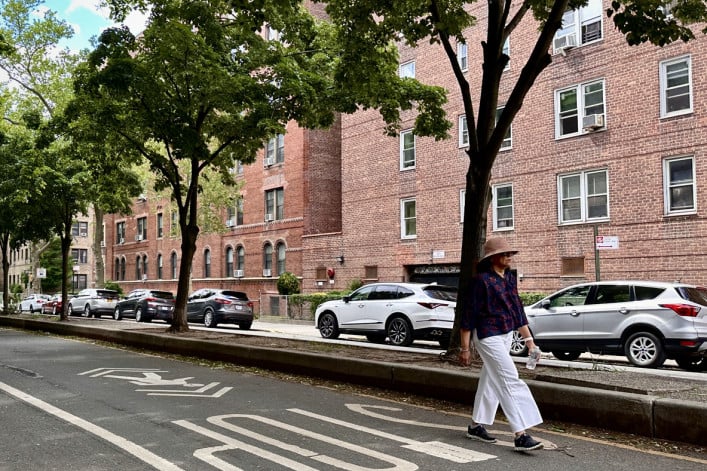Ask Altagracia: Can my landlord refuse a lease assignment if I need to break my lease?
- A landlord cannot unreasonably refuse a request to assign your lease
- Breaking your lease outright may be simpler than assigning or subletting

If your landlord unreasonably refuses your proposed assignment, you can still assign or sublet the apartment and recover your legal fees if there’s a dispute.
iStock
I need to break my lease and have already found someone to replace me, but the landlord says this is unacceptable. Can my landlord refuse a lease assignment?
You cannot assign or sublet your apartment without the landlord’s approval. At the same time, the landlord cannot unreasonably refuse your request. “Your protections are outlined in section 226-b of the real property law, which lists the actions you need to take to get out of your lease,” said Altagracia Pierre-Outerbridge, attorney and founder of Outerbridge Law representing residential tenants, condo owners and landlords.
What’s more, if your landlord unreasonably refuses your assignment, you can still assign or sublet the apartment and recover your legal fees if there’s a dispute. “In that situation, you as the tenant who is wronged, can have your attorney’s fees reimbursed,” Pierre-Outerbridge said.
Breaking your lease with an assignment or sublet
Assigning an apartment is a way of handing off the rental to a new tenant for the rest of the lease term. This is different from a sublet, where a new tenant takes over the rental but you plan to return before the end of the lease term.
The request sent to your landlord regarding assigning the lease must have specific information including the name and address of the new tenant. The landlord then has an opportunity to request more information. “There’s a strict timeline for the tenant and landlord to follow,” Pierre-Outerbridge said.
Say you want to assign the lease to a friend: If the landlord isn’t responding to your request to assign a lease, after 30 days you can assign the apartment regardless. A lack of communication once you’ve sent the necessary notifications is a default consent. If the landlord later files proceedings against you for non-payment and refuses to recognize the new tenant, an attorney can help you fight the case. If successful, your legal fees will be reimbursed.
Keep in mind, if your proposed assignee doesn’t have strong financials or a stable rental history, your landlord may have grounds to reasonably reject the request.
Consider breaking a lease without assigning it
Even though your landlord cannot unreasonably refuse a lease assignment, you may want to consider simply ending the lease early. “The landlord is in the business of renting—so when you are told to assign or sublet in order to break your lease, that is a bad faith move on the part of the landlord,” Pierre-Outerbridge said.
Tenants in New York have a level of protection in a lease break situation because the landlord has a duty to mitigate damages. This means they must do everything possible to rent the apartment once you leave and reduce their own losses. “In the best scenario, you leave, the landlord finds a new tenant, and you are off the hook for the remaining rent,” Pierre-Outerbridge said. This will require a notification to your landlord and ideally an agreement allowing you to leave without being liable for further rent.
The bottom line: whether you’re assigning, subletting, or trying to break your lease outright, the law gives tenants protections—but only if you follow the required steps and deadlines. If your landlord pushes back, an attorney can help you assert your rights and even recover legal fees in the process.
Altagracia Pierre-Outerbridge, Esq. is the owner of Outerbridge Law P.C, focusing primarily on tenant representation. The firm represents all sides in landlord-tenant litigation and transactional matters such as month-to-month holdovers, nuisance cases, licensee cases, harassment claims, repair cases, tenant buyouts, succession claims, DHCR overcharges and rent reductions and more. Pierre-Outerbridge has 15 years of experience litigating in Supreme, DHCR, and Housing Court. To submit a question for this column, click here. To contact Outerbridge Law P.C. directly, call 212-364-5612 or 877-OUTERBRIDGE, or schedule a meeting today.
You Might Also Like


























